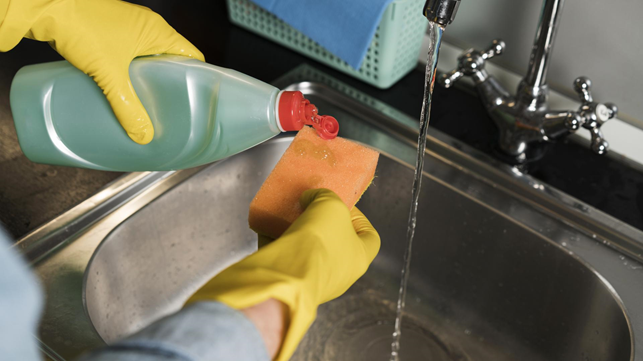Kitchen Sinks – Why Do They Get Blocked
Homeowners devote significant time to their kitchen sink; certain studies indicate this could be anywhere from 30 minutes to two hours daily. Therefore, when your kitchen sink is blocked, it’s far from a minor issue. Below are seven typical causes of a blocked kitchen sink and a plan of action to rectify the issue so you can promptly return to the growing mound of washing up.
Fat, Oil, or Grease
Any cooking component with a high-fat content—such as oil, bacon fat, or lard—might have been a liquid when you poured it down the sink. Still, over time, the fat solidifies when it encounters the cool interior of the drain, leading to severe blockages. You should dispose of any type of fat in a container and discard it in the rubbish bin.
Starches
Pasta, potatoes, beans, and rice are four usual culprits of blocked kitchen sinks. When exposed to water, they swell, forming a paste-like substance that harms your pipes. Dispose of these foods in the rubbish bin.
Ground Coffee
Like the starches mentioned above, coffee grounds become dense when combined with water, resulting in blocked pipes. Coffee should be thrown into the rubbish, added to the compost heap, or spread on the soil of acid-loving plants such as roses, as it lowers the soil’s pH.
Other Food Scraps
Food should always go into the rubbish or the compost as, over time, bits and pieces of your dinner can become lodged in the trap, the curved pipe under the sink. And we all know how indestructible sweetcorn is!
Soap Scum
Many soaps contain fats, and when they combine with the hard minerals found in some types of water, they can block your pipes. Hire a Drain Unblocking service to pressure-wash the pipes and consider soap-free cleaning products to resolve this.
Small Objects
If you have children, there’s a chance that a marble, small toy or other tiny object has accidentally found its way into the kitchen sink, causing the blockage. To unblock the pipes of any toy cars or dinosaurs, you’ll need to remove the P-trap or U Bend.
Tree Roots
If you have several blocked drains, it could be that your sewer line is backed up, possibly due to tree roots. The roots search for even the most minor cracks in your sewer line—especially if the lines are old—and infiltrate and grow within them. A specialist plumber will need to break up the tree root and clear the sewer line with a tool, and you’ll probably need to have the sewer pipes repaired.
Kitchen Sink Maintenance
Keep a clean kitchen sink and adhere to a regular maintenance routine to prevent blockages and other issues. These tasks include:
- Running water to ensure food scraps are adequately washed away.
- Clear out pipe build-up every week by pouring half a cup each of baking soda and white vinegar down the drain.
- Consider installing drain screens to catch larger food particles and other objects that may accidentally fall into the sink. These are especially helpful in preventing clogs in the U Bend or P-trap.
Conclusion
By adhering to these regular maintenance tips, you can help prevent your kitchen sink from becoming clogged and ensure it continues functioning smoothly for many years.
But remember, if a clog does occur that you can’t quickly fix yourself, don’t hesitate to call in a professional. Getting the problem sorted sooner rather than later is always better to prevent potential damage.





